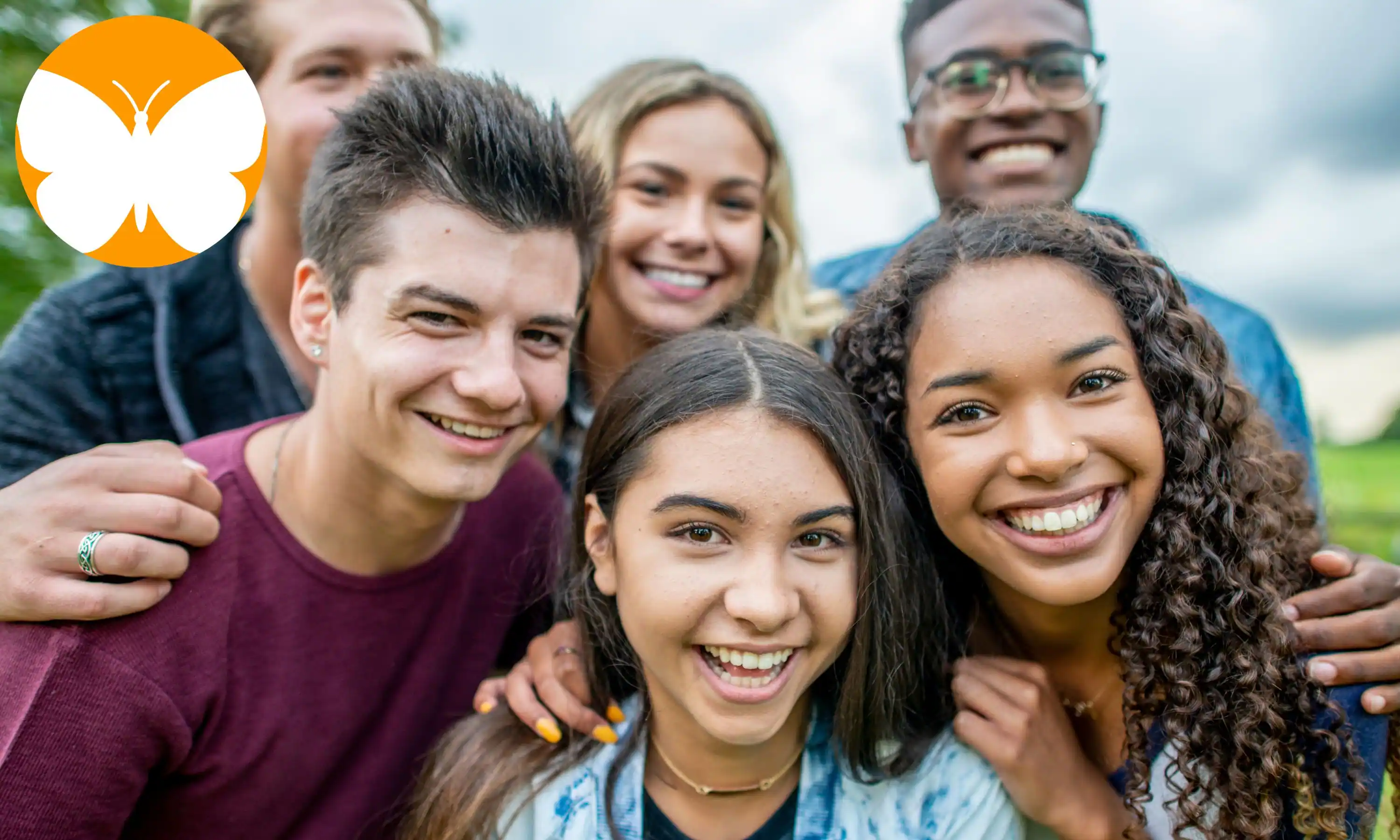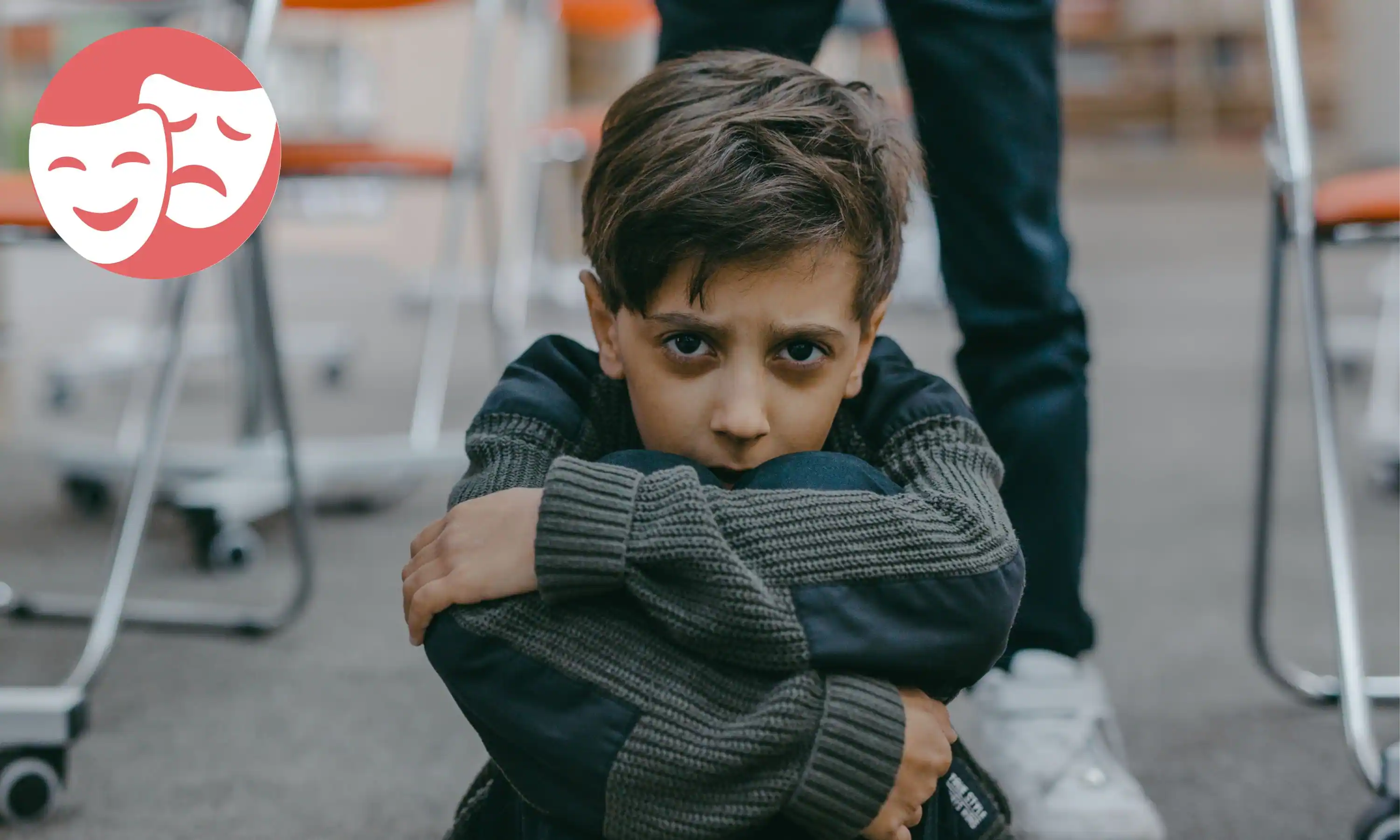Make Change Easier
for Your Child
Support optimism and stability through
moves or life transitions.
Adapting to New Beginnings
Designed with educators, backed by psychology, and
easy to integrate into your school’s
routine.

Plan Objectives
 Building Resilience
Building Resilience
Teach children strategies to handle change and develop emotional strength.
 Strengthening Social Skills
Strengthening Social Skills
Help children make new friends and build positive relationships.
 Managing Fear of Change
Managing Fear of Change
Equip children with techniques to reduce anxiety about unfamiliar environments.
 Developing Cultural Awareness
Developing Cultural Awareness
Encourage children to appreciate and respect new perspectives and lifestyles.
Why This Plan?
This plan addresses the following challenges by developing targeted skills

My child does not have future goals

My child gives up easily on relationships

My child becomes upset when plans change

My child seems oblivious to other lifestyles and beliefs
My child does not have future goals
How This Plan Helps
Encourages children to view new beginnings as opportunities to set and pursue goals.
Skill: Resilience
Course: Resilient You: What is Resiliency?
My child gives up easily on relationships
How This Plan Helps
Teaches children how to maintain old friendships while forming new ones.
Skill: Relationship Management
Course: Relationship Building Basics
My child becomes upset when plans change
How This Plan Helps
Provides strategies to handle unexpected changes with a positive outlook.
Skill: Fear Management
Course: FearLESS: Building Brave Young Hearts
My child seems oblivious to other lifestyles and beliefs
How This Plan Helps
Encourages understanding and appreciation of new cultures and ways of life.
Skill: Social Awareness
Course: Human Dynamics
01Adjusting to a New School
Helps children feel more confident when starting at a new school and making new friends.
02Managing Stress About Moving
Provides children with techniques to reduce anxiety and build resilience.
03Navigating Unexpected Changes
Equips children with strategies to adapt to new environments and situations smoothly.
04Understanding and Appreciating Cultural Differences
Encourages children to embrace diverse perspectives and adapt to new social settings.
Real-Life Applications
How this plan's skills apply to real-world scenarios for everyday success
Courses Included


Resilient You: What is Resiliency?
Emotional
Resilience
Course Details:
Modules: 4 |
Lessons: 33
Resilience Building: Enhance resilience through effective goal-setting and learning from setbacks.
Emotional Regulation: Improve well-being by developing skills for managing stress and emotions.


Relationship Building Basics
Social
Relationship Management
Course Details:
Modules: 4 |
Lessons: 32
Trust: Develop the ability to build and maintain trust, strengthening supportive connections.
Benefits: Understand how healthy relationships enhance well-being and personal growth.


FearLESS: Building Brave Young Hearts
Emotional
Fear Management
Course Details:
Modules: 4 |
Lessons: 31
Understanding Fear: Recognize fear’s role and learn when it’s helpful or harmful.
Coping Strategies: Explore methods to manage fears like social anxiety and failure.


Human Dynamics
Social
Social Awareness
Course Details:
Modules: 4 |
Lessons: 32
Empathy Development: Grow empathy by valuing diverse perspectives and experiences.
Bias Challenges: Work against biases and stereotypes to improve fairness and equality.
Meet the Course Creators

Dr. Kymberli Barker
Relationship Building Basics
Resilient You: What is Resiliency?
Dr. Kymberli Barker
Relationship Building Basics
Resilient You: What is Resiliency?
Dr. Barker is the mother of two fantastic young men, and they are her priority in life. She holds degrees in biochemistry, math, forensics, and psychology. She is a consultant and a professor at multiple colleges, including the Citadel, and Johns Hopkins Center for Talented Youth. She spent fifteen years in public education, prior. Her personal focus is child advocacy and she developed the Guardian ad Litem/(GAL)/CASA program for the Eastern Band of Cherokee Indians. She is tribally and state sworn as a GAL. Her favorite thing is being a mom.

Ali Dareneau
Relationship Building Basics
Ali Dareneau
Relationship Building Basics
Ms. Dareneau is an English teacher with dual degrees in Psychology and English Education, she enjoys helping students reach their potential, especially when it comes to English Language Arts. With over 16 years of classroom experience and working with education-based companies, she brings creativity and enthusiasm to the classroom and beyond. She earned a Bachelor's degree in Psychology in 2007 and completed her Masters's degree in English Education in 2013 which have both shaped her into the passionate educator she is today. Her professional experience as an English teacher, curriculum designer, and writer demonstrates her passion for reading and writing and solidifies her belief all students can strengthen their reading and writing skills no matter what level they begin their journey.

Lauren Hudak
FearLESS: Building Brave Young Hearts
Lauren Hudak
FearLESS: Building Brave Young Hearts
Lauren Hudak is an educator with over eight years of experience. After graduating from the University of Virginia with degrees in English Literature and Media Studies, she went on to get her Masters in Teaching from New York University. Lauren has worked with all ages of students from Pre-K through college, but she thrives when working with middle schoolers. She believes this is the perfect age to integrate mindfulness, technology, and social emotional learning into student learning objectives. She wants to help students conquer their fears and build a better world. When she’s not teaching, Lauren loves being outdoors, traveling and spending time with her family.

Melissa Miletic
Human Dynamics
Melissa Miletic
Human Dynamics
Melissa Miletic is a dynamic educator with over ten years of experience in education, beginning her journey with a transformative volunteer stint abroad at 18. She has since navigated all facets of education, from policy-making to classroom teaching, driven by her multicultural upbringing and a deep belief in the value of diversity. Committed to providing holistic, inclusive, and high-quality education, Melissa strives to impact learners across all demographics and geographies. Her approach blends modern methodologies with a global perspective, aiming to make learning engaging, relevant, and accessible to everyone. Holding a double bachelor’s degree in International Relations and Communication from the University of South Florida and a master’s in International Education from New York University, Melissa’s expertise lies in crafting educational experiences that resonate universally. Her professional and personal mission is to champion education as a transformative force, bridging cultural divides and fostering understanding in a connected world.
Sample Lesson Preview

Resilient You: What is Resiliency?
What is Resilience?
What is Resilience?
What exactly needs to be developed to become resilient?
Many agree there are different levels of resilience to be expected at different ages and even in different fields.
For example training on military resilience is very different from how we would discuss it with teens. This course will introduce concepts for variations and provide links to additional information.
For now, we are going to begin with the idea of the 7 Cs mentioned by Coach Reese. Here they are again in case you missed them: Confidence, Competence, Connection, Character, Contribution, Coping, Control.
These seven concepts really summarize where we need to focus our attention to become stronger in certain areas of our lives.
The students will be developing their personal research focusing on one or more of these areas.
You might consider researching along with them. Where do you think you might work a bit more on skills for bouncing back?
Sample Lesson Preview 
Relationship Building Basics
Benefits of Healthy Relationships
Benefits of Healthy Relationships
It is essential for our well-being to cultivate and maintain healthy relationships. Benefits of healthy relationships include:
- Emotional Support: Our friends, family, and acquaintances give us the supportive network we need. We can share joys, sorrows, and challenges together. Emotional support from loved ones helps us navigate life's ups and downs.
- Personal Growth: Relationships offer opportunities for personal growth and self-reflection. Interacting with others helps us develop empathy, understanding, and emotional intelligence.
- Health and Happiness: Healthy relationships contribute to overall well-being. We can have increased happiness, reduced stress levels, and improved mental and physical health.
Please think of your relationships. Please take a minute to journal the benefits you gain from people in your life.
Sample Lesson Preview 
FearLESS: Building Brave Young Hearts
Fight, Flight, or Freeze
The Triple F’s of Fear
Fight, Flight, and Freeze are the three basic ways that our bodies respond to threats.
Your brain might decide that fighting the danger is best. For example, if you are faced with an unfriendly animal, you might yell or throw things at it to try to get it to go away. You might have learned to wave your arms and stomp your feet. You’re trying to prove that you are the bigger threat so the animal will leave you alone!
Sometimes, flight is the best option. Your brain wants to get you out of a dangerous situation quickly. This could mean physically running away from something scary, but it could also mean avoiding something that you find intimidating. For example, maybe it means not raising your hand in class because you’re scared you’ll get the answer wrong in front of others.
The last “F” stands for freeze. Sometimes, your brain can’t make a decision. Instead of fighting or running from the danger, you freeze up. You might have a hard time speaking or yelling, your mouth might go dry, or you might feel faint or lightheaded.
Sample Lesson Preview 
Human Dynamics
Importance of Social and Cultural Awareness
Why it Matters
Social and cultural awareness are important. Here’s why:
- Making Friends And Feeling Happy: When we learn about and respect how others live, it's like friendship magic! Kindness and respect help us make more friends and have fun together.
- Peace And Teamwork: If everyone understood and respected each other's ways, there would be less fighting and more teamwork. This teamwork helps us solve big problems like protecting the planet, and that's super important for the future.
- Learning And Adventure: Learning about different cultures is like going on an exciting adventure. It makes us smarter and more creative while making the world more interesting.
- Future Jobs: Many future jobs will involve working with people from all over the world. Understanding their cultures and ways of doing things can help you succeed. Always remember to be curious and respectful about the amazing uniqueness in our world!
